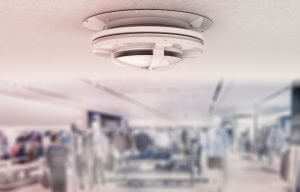Dangers of a Cracked Heat Exchanger
 When the leaves start changing, and there is a chill in the air we all begin thinking about the colder weather of the winter ahead. But is your HVAC ready? Ultimately, through your scheduled maintenance plan your fall service has been completed or is about to. What if your technician reports that you have a cracked heat exchanger? What does that mean?
When the leaves start changing, and there is a chill in the air we all begin thinking about the colder weather of the winter ahead. But is your HVAC ready? Ultimately, through your scheduled maintenance plan your fall service has been completed or is about to. What if your technician reports that you have a cracked heat exchanger? What does that mean?
A cracked heat exchanger could allow exhaust gas to escape from the furnace and contaminate the air with carbon monoxide. The American Gas Association recommends that if the technician discovers a crack, that you must replace the heater exchanger.
What does the heat exchanger do?
So, here’s the deal. If your system functions properly, the flue transfers carbon monoxide or other gasses safely out of the property. The heat exchanger contains the gas combustion chamber. As air circulates through the HVAC system is passes through the exchanger. It absorbs thermal energy before it’s distributed through the space.
Your HVAC system subjects your heat exchanger to extreme temperatures. As they heat up and cool down, the metal expands and contracts. This stress makes them susceptible to cracking. In addition, deterioration occurs if there is too little airflow through the system, causing excessive heat. This is usually a result of an oversized furnace with undersized ductwork. What’s more, damage happens when there is too much airflow, causing lower than normal temperatures.
How do you know if you have a cracked heat exchanger?
This is a subtle problem, that can go unnoticed, especially in a neglected HVAC system. However, if your company has a scheduled maintenance plan, the technician will always check the heater exchanger. Specialists know where to look. They have equipment you do not. Furthermore, they are specially trained to spot potential issues.
What happens if a cracked heat exchanger is discovered?
The furnace depends on the heat exchanger to contain dangerous fumes. It serves to exhaust them out while transferring valuable heat. When the heat exchanger is compromised, whether by cracks or corrosion, flue gasses can potentially escape. As a result, causing illness to building inhabitants.
If a crack is discovered, your HVAC technician will need to replace the heat exchanger. Remember, the American Gas Association directly recommends it. It is an investment that is worth the safety of you, your employees and your customers.
The Severn Group recommends that businesses budget for a Scheduled Maintenance Contract. We will inspect and service your entire system twice a year once in the spring and the fall. Contact us today!
